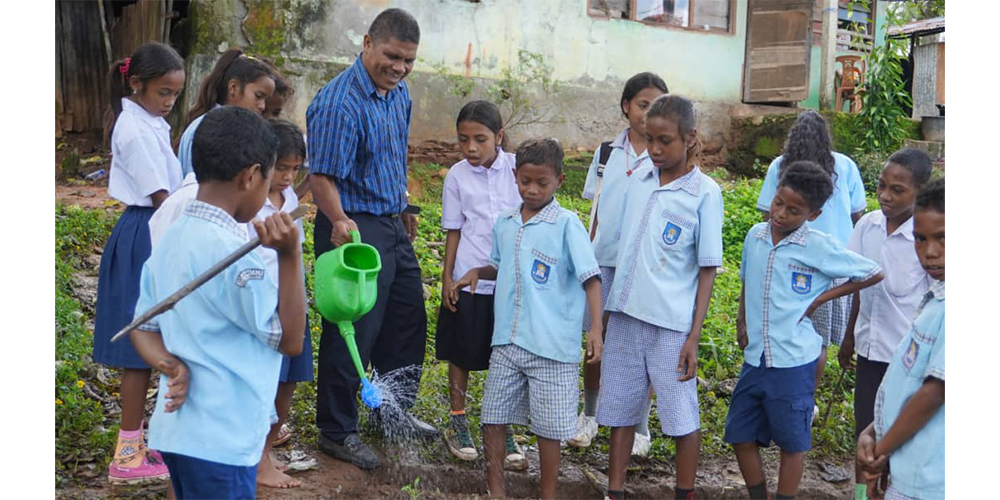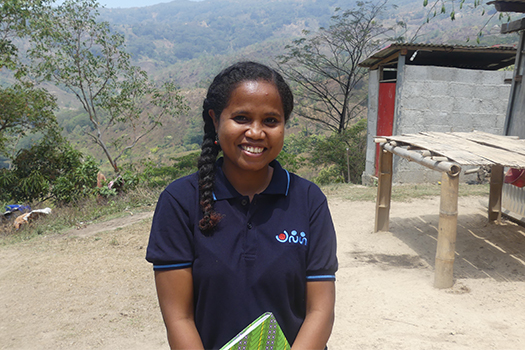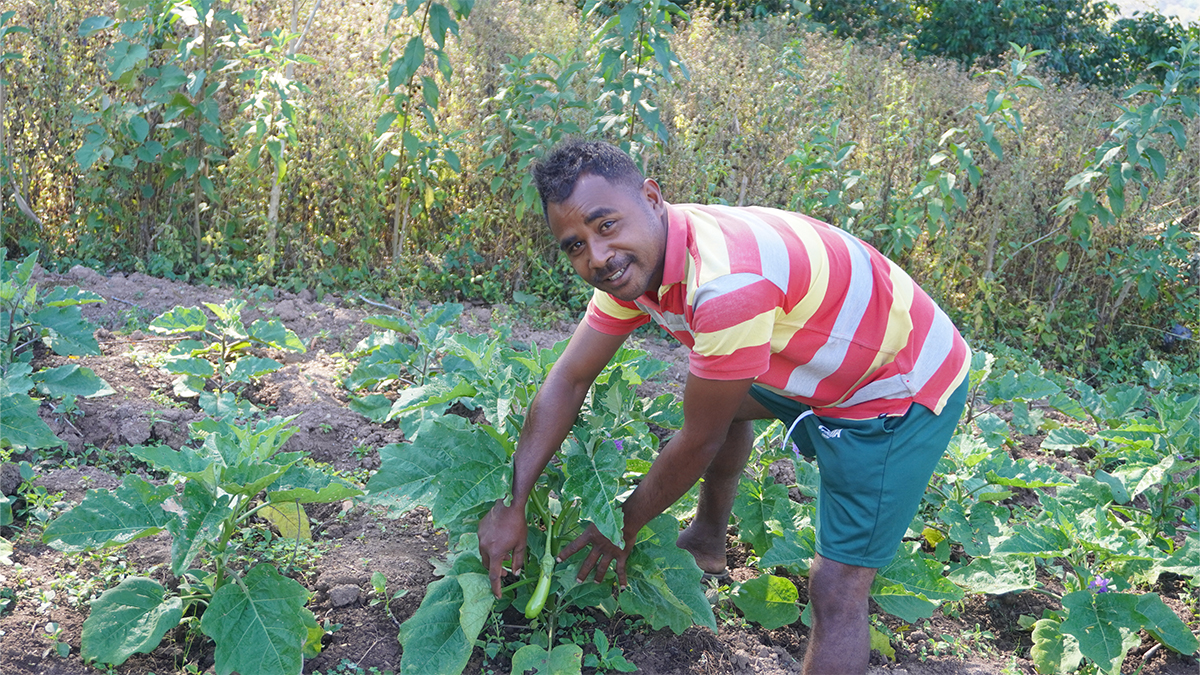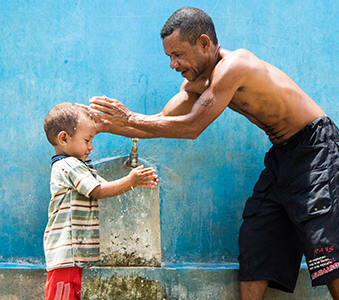The Food Security Project in Railaco supports vulnerable farmers in learning sustainable agriculture techniques. It provides access to agricultural inputs and seeds to boost agricultural production that will help them establish better food security.
People in the remote villages of Railaco rely on subsistence farming for their livelihoods. Like almost half the population of Timor-Leste, these villagers struggle with the burden of poverty. The community currently has the highest infant mortality rate and incidence of malnourished children in the country.
The project works with community members to build knowledge of nutrition and health, including teaching students at local skills about sustainable agriculture. With your generous support, this vital project will run for three years and directly benefit 1,950 households, bringing new hope, improved health and greater opportunity to the people of Railaco.
The project focuses on building the skills, knowledge, and resources of community members to sustainably produce their own food and better understand nutrition requirements that will stave off illness and malnutrition that disproportionately affects children. JSS also plans to develop community-agreed regulations to protect water sources, trees, and lands in order to promote reforestation and food security, as well as working with existing school gardening programs.

Elsa’s story
The daughter of a school teacher, Elsa grew up travelling around Timor-Leste with her family. A strong student, she finished her final year of high school at a Jesuit school in Dili.

“That’s where I started to see that Jesuit work is different.”
Elsa Project Manager of JSS’ Food Security Project
After high school, Elsa studied Social Economic Agriculture at the National University of Timor, and soon after joined Jesuit Social Service (JSS) Timor-Leste.
Now, Elsa is the Project Manager of the JSS Food Security Project and is working directly with people in the remote villages of Railaco.
“The main goal is for the community in Railaco to achieve food security, to have enough food to put on their table and to be able to sell some of their agricultural produce at the market,” she says.”If we can do that we will have less malnutrition in Railaco, more children with access to education and improve health in general.”


